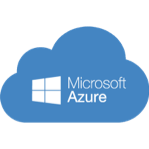-

How Much it ll cost to build an app like
- Cost to develop an Uber Tow Truck App
- Cost to develop a Pest Control App
- Cost To Develop a Handyman App Like Uber
- Cost To Develop a Doctor Appointment Booking App
- Cost To Develop An App Like MoodBites
- Cost To Develop An App Like SkipTheDishes
- Cost To Develop An App Like Q Chat
- Cost To Develop An App Like TickTick
- Cost To Develop An App Like ContractBook
- Cost To Develop An App Like Utter
-

How Much it ll cost to build an app like
- Cost to develop a Video Editing Mobile App like Magisto
- Cost to develop a Live Video Streaming App like Twitch
- Cost to develop an app like Home Workout- No equipment
- Cost to develop a Sports News app like theScore
- Cost to develop an Application like Reddit
- Cost to develop a Sports News app like theScore
- Cost to develop an E-learning platform like Udemy
- Cost to develop an On Demand Doctor App like Heal App
*

Unleashing the Potential of AR and GPT for Streamlined Online Doctor Appointment Booking
As digital innovation accelerates, the healthcare sector is undergoing a transformative shift. A central element in this transition is the advent of online doctor appointment booking systems, which enhance patient-doctor communication, streamline the booking process, and pave the way for improved healthcare outcomes. The emerging technologies of Augmented Reality (AR) and Generative Pre-training Transformer models (GPT) are at the forefront of this transformation, set to redefine the healthcare experience.
The Potential of AR in Streamlining Online Doctor Appointments
AR superimposes digital information on the user’s physical environment, intensifying their interaction with the surrounding world. In the healthcare landscape, AR can revolutionize the online appointment booking process and telemedicine consultations.
Firstly, AR can facilitate an immersive, user-friendly booking experience. For instance, an AR-enabled application can guide patients through a virtual tour of a medical facility, assisting them in understanding which departments or specialists align with their healthcare needs. This interactive approach can enhance patient comprehension, reduce appointment miscommunications, and ultimately increase efficiency.
Secondly, AR’s role in telemedicine can revolutionize the patient-doctor interaction during online consultations. With AR interfaces, patients can visually communicate their symptoms, while doctors can perform virtual examinations or illustrate medical procedures.
Leveraging GPT for Efficient Online Doctor Appointments
GPT models, such as OpenAI’s GPT-4, use machine learning to produce text that mirrors human conversation. GPT’s potential to transform online doctor appointment booking is substantial.
GPT can play an integral part in the patient triage stage by engaging in patient conversations, comprehending their symptoms, and directing them towards the appropriate medical specialist. This would not only streamline the booking process but also make it significantly more accurate.
Moreover, GPT can assist healthcare professionals in documenting consultations, reducing the administrative load and allowing for more focused patient care. It can also automate the generation of patient reminders and follow-up messages, thereby optimizing patient communication and adherence to treatment plans.
AR and GPT in Action: Case Studies
The integration of AR and GPT in healthcare is already underway. HealthLens, a US-based telemedicine startup, has introduced an AR tool that enables patients to visualize the human body for a more effective symptom communication during online consultations. This innovative approach has led to a 30% increase in patient satisfaction scores.
In another development, the global health company Ada Health has incorporated GPT into its appointment booking system. This integration has automated patient interactions during the booking process, resulting in a 20% reduction in booking time and a 15% improvement in appointment accuracy.
Looking Ahead: AR and GPT in Online Doctor Appointments
Although still in its nascent stages, the intersection of AR and GPT with online doctor appointment booking exhibits tremendous potential. With continued advancements and wider adoption, these technologies could usher in an era of highly efficient, user-centric, and effective online healthcare experiences.
Advantages and Roadblocks
The infusion of AR and GPT into online doctor appointments brings numerous advantages, including enhanced patient understanding, increased appointment accuracy, improved patient satisfaction, heightened healthcare efficiency, reduced administrative tasks, and optimized patient management.
However, the road to implementation is fraught with challenges such as technical complexities, data security and privacy concerns, accessibility for all patients irrespective of their technological know-how or availability of high-speed internet.
Technical Considerations
The technical aspects of AR and GPT implementation in healthcare warrant meticulous consideration. For AR, creating reliable, useful, and user-friendly experiences is challenging and requires advanced AR technology, accurate 3D models, and a profound understanding of medical procedures and patient experiences.
GPT, on the other hand, requires extensive training on diverse, comprehensive, and accurate medical data to effectively comprehend and respond to a wide range of patient inputs.
Regulatory and Ethical Implications
The deployment of AR and GPT in healthcare raises critical regulatory and ethical issues. Regulations concerning AI and AR in healthcare are still under development in many jurisdictions. Hence, healthcare providers and tech developers need to work in close collaboration with regulators to ensure compliance with all relevant laws and guidelines.
Furthermore, the high ethical stakes in healthcare demand careful attention to issues like data privacy, informed consent, and equitable access when developing and implementing these technologies.
Future Developments and Trends
As technology matures and regulations advance, AR and GPT are set to become more integrated into online doctor appointment booking systems. Expect to see more interactive AR tools aiding patient understanding and treatment options, and GPT models delivering more nuanced and effective patient-AI interactions.
The convergence of AR and GPT in online doctor appointment booking is a game-changer, promising to fundamentally alter the healthcare experience. Though significant challenges exist, the potential benefits for patients and healthcare providers are immense. As digital healthcare forges ahead, these groundbreaking technologies will indubitably play a vital role in shaping its future.

Author
Our Partners




WhatsApp us


